|
The House Health Quality Subcommittee met today - Here is the link to VIDEO testimony Dr Sue Sisley was on hand to testify and was spectacular, as always. Please share this information - and be sure to watch what's happening up at the Capitol and communicate with both the committee members and your elected officials.
We have a ton of news on our Facebook page - be sure you Like our page and stay appraised of news from Florida and around the Nation pertaining to Cannabis. Facebook Page HERE If you like the information in this post, please share it with others you think may like it too. Occasionally, planning boards or commissions are faced with a petitioner’s request to re-zone property only to be challenged with an objector’s claim that doing so would constitute illegal spot zoning. The plan commission often has a quandary; approve the development and risk making an improper, if not illegal decision, or deny the development which would have financially improved the community. To better assist with this difficult decision, it is beneficial for the commission to understand exactly what “spot zoning” is. Spot zoning is, in fact, often thought of as the very antithesis of plan zoning. 2 When considering spot zoning, courts will generally determine whether the zoning relates to the compatibility of the zoning of surrounding uses. Other factors may include; the characteristics of the land, the size of the parcel, and the degree of the “public benefit.” Perhaps the most important criteria in determining spot zoning is the extent to which the disputed zoning is consistent with the municipality’s comprehensive plan. Counties and municipalities both adopt comprehensive plans for the purposes of stating their long term planning objectives, and addressing the needs of the community in one comprehensive document that can be referred to in making many zoning decisions over time. Comprehensive plans also typically map out the types (and locations) of future land use patterns which the municipality (or county) would like see -- again, these provide guidance for changes in the zoning ordinance and zoning district maps. The key point: rezonings should be consistent with the policies and land use designations set out in the comprehensive plan. Importantly, each claim of spot zoning must be considered based upon its own factual scenario. Indeed, some courts engage in a cost/benefit analysis to determine whether the challenged zoning is spot zoning. Although courts often find spot zoning where the challenged zone is surrounded by other incompatible zones, spot zoning is less likely to occur when the rezoning has “slopped over” by the extension of the perimeter of an existing zone to include the rezoned area. Additionally, improper spot zoning is less likely when the disputed area is characterized by mixed uses or transitional areas. In other words, spot zoning is more frequently found in residential than in commercial neighborhoods. When holding that spot zoning is invalid, some courts will couch their ruling in in terms of substantive due process -- in other words, that the rezoning was not “reasonably related” to a legitimate state interest. Other courts will frame a ruling upon equal protection principles. Regardless, when courts declare such rezoning invalid they must base their declaration on: (1) the lack of connection of the rezoning to a legitimate power or purpose; (2) the lack of the rezoning’s conformity to the comprehensive plan; or (3) the rezoning’s representing an unreasonable inequality in the treatment of similarly situated lands. Countering Spot ZoningSpot zoning, however, may be countered when the challenged zoning is found to be consistent with a municipality’s recent zoning trends in the area, not just with the present surrounding uses. To illustrate the importance that each factual scenario must be closely addressed, rather than merely labeled, it should be noted that one Illinois court found that the rezoning of small parcels inconsistent with the zoning of surrounding areas is not necessarily unlawful. The size of a parcel is just one factor to be considered in determining spot zoning. A claim of spot zoning may also lack merit, for instance, when the zoning or planning regulations consider the boundaries of the property in dispute to contain a line of demarcation between zoning districts which would appropriately separate one zoning district from another. Most importantly though, if the zoning is enacted in accordance with a comprehensive plan, it is typically not “spot zoning.” *excerpted from :PlannersWeb.com* There's a brief lesson in Zoning and Spot Zoning above - and you may be there wondering "Why all the Hullabaloo?" This was a HUGE issue in Colorado and Michigan back in 2011-2013, and many issues still continue today in multitudes of states. We as an industry in Florida must be PROACTIVE within our communities and work diligently to avoid these situations. Making legal errors in these areas is vastly expensive and time consuming, and many times the cost of all of that lands on the patients through upped product costs, delay or services if not entire loss, and complete upset and unrest within the community. Let's talk about Boulder Colorado - March - 2012 District Attorney Stan Garnett addresses Attorney General John Walsh regarding the zoning of Medical Marijuana Dispensaries. See letters below Once you have absorbed the content of these letters you will start to recognize the importance of understanding Spot Zoning, and not allowing it to happen. In addition, it is imperative to ensure cannabis business locations not be located by schools, daycares, boys and girls clubs, and public parks. Once a business is located and licensed, it is important to ensure the previously mentioned schools, etc. not be allowed to license a location within the parameters and drive a dispensary out of a location or cause a local fight. Please see Denver Westword story regarding issue HERE Below, we close with a Public Policy Brief presented by Michigan State University Extension. It's a jungle out there folks! Please remember - we're here for you. Be sure to subscribe to our Newsletter HERE If you found this article useful, please share on your social media and e-mail. Thank you Hiedi & Irv Irvin and Hiedi discuss the confusion surrounding Amendment 2 implementation.
Please be sure to share - we want to keep everybody safe. Patients - sign up at www.FPFU.org please. Prospective Business Owners - read carefully please. This information is HUGELY important to your business and how Florida moves forward. As of today, January 3, 2017 - Amendment 2 is in effect. What does that mean? Well........that means the will of the voter is in place, and the Amendment is moving forward as directed in the language of the Amendment. It does NOT mean businesses can fling doors open yet. The rules have to be set in place - Session for Florida starts in March. The BEST thing you can do know is understand COMPLETELY the law, the process, and follow along very closely. Let's throw some history and resources down here: First - The Amendment Next - Financial Impact Statements - first listed is abbreviated statement - after that is full analysis. Now we head on over to the Florida Department of Health website - Always remember we have these links here so they are easy for you to find. Committee on Health Policy Page - Click HERE - page will open in another window They held their first meeting December 13, 2016 - You may view in entirety HERE Below - you will find the entire meeting packet. 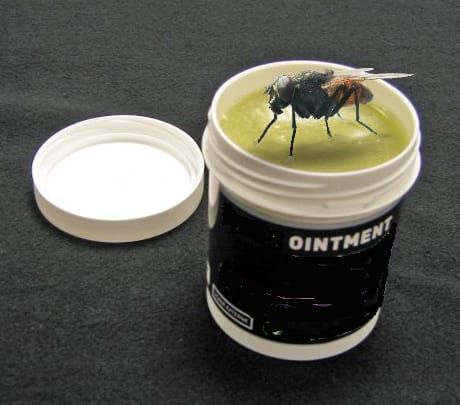 Here's the proverbial "Fly in the Ointment" Florida Statute 381.986 Compassionate use of low-THC and medical cannabis Click HERE to read this law. When you do, you will realize the problems of understanding the two laws and trying to merge them together. They cannot be "auto-merged" - as a matter of fact - the current licensees are requesting to be Grandfathered in to the new licensing structure. Do your research folks! It's important! If you are considering getting into the Cannabis Industry in Florida - it is IMPERATIVE you understand and absorb the information listed above. The opposition was present at the meeting in December - we need to ensure OUR people are there in force for the next meetings.
My Medicine Consulting is here to assist you with these endeavors - Please contact us today to guide you through this process. Irvin Rosenfeld - 954-536-9011 - [email protected] Hiedi Handford - 202-760-1924 - [email protected] What cities are trying to avoid All across Florida cities are implementing bans or moratoriums. We always hope to see the word "temporary" as this implies the city is preparing for implementation of Amendment 2. It's when we see the word "permanent" that we get concerned. Very concerned. Medical Marijuana in Florida received more votes in support than any other issue/candidate in November of 2016. Cities are taking note of that, and preparing for implementation, licensing, zoning, and the plethora of questions they have coming their way. It's not an easy process. By implementing a temporary ban or moratorium they are stopping the licensing department from issuing licenses and give the licensing department an answer for people who call or inquire. This is part of a process and it is intended to allow the city to accommodate the new Will of The People. Permanent bans go directly against the voters wishes, and must be approached logically and rationally to suit the needs and concerns of all. Permenent bans are most concerning as those cities are not following the will of their voters, and citizens need to address their commissions to educate, and remedy the situation at hand. There are Floridians in every city across our great state who need access to this plant to treat their conditions. We hope that those cities with bans in place will contact us and allow us to educate them and aid in assuaging the concerns of the locals while ensuring patient safety and access. When birthing a new industry, it is imperative that rules and regulations are clear and concise. Especially in an industry where people can go to jail if things go wrong, or rules are not followed very closely. Already we have had at least one shop in Florida open without a license, get raided, and get closed down. See links below. Orange Park Medical Marijuana Dispensary Raided Deputies raid medical marijuana dispensary If you are interested in getting into this new business, please ensure you do it correctly. We're here to help with that. Don't have any trainwrecks like pictured above getting into this industry - let the professionals hold your hand. Our goal is the picture below! [email protected] - 954-536-9011 [email protected] - 202-760-1924 THIS is the kind of Trainwreck we hope to see soon in Florida - In Compliance!
Amendment 2 passed - patients are rejoicing across the state. Now what??? Hurry up and wait - that's what you do, unless you wish to get onto the program developed in 2014 - the CBD law. Amendment 2 goes into effect January 3, but THAT'S IT for now. Rules have to be written, guidelines established, and Physicians have to come on board. Not all Doctors out there are going to issue medical marijuana referrals. We have been watching the Florida Department of Health website for any guidance, and what is there is very vague. Look for yourself: Florida Department of Health What they are talking about is the 2014 CBD law - NOT Amendment 2 - so don't go thinking you are "safe to use" under Amendment 2 just yet. Found a great resource here at Florida Medical Marijuana Doctors so be sure and read up there too. In the meantime - we highly recommend to all patients to sign up for Florida Patients and Families United. Communications will be starting by the end of December. WHY join Florida Patients and Families United? Because we're giving the patient a voice at the Capital. We have direct feed from Tallahassee from people working directly on the issues so we can guide and instruct you on communicating with your civic leaders on the building of this bill. The patient's voice MUST BE HEARD or regulations will be written without proper feedback. We're going to guide you and instruct you on what's going on, and responses to send to your civic leaders. Sign up HERE please - and be sure to join the Facebook group HERE We hope to see the best law in the Nation in Florida, and we can't do it without you and your voice. If you like this story Please be sure to like and share this post so we don't see a bunch of Floridians getting in hot water with the law January 3, 2017. In other states drug "crime" convictions can result in inability to participate in medical cannabis program (don't shoot the messengers - we know diseases aren't selective) and we need to ensure sick patients in Florida don't make the same mistakes. It could cost people their lives.
Thank you for your attention to this. It's VERY important. We have NO CLUE what's going to happen in Tallahassee regulating this industry. Be sure you get your 2 cents in. We need every person possible in Florida having educated conversations with their elected officials.  Cannabis consulting has exploded across the Nation in the past few years, giving entrepreneurs in need of business and operational help more options than ever. It also makes it more confusing than ever. So many people out there with so many skills, how does a person choose? With the passing of Amendment 2 in Florida, new businesses are opening across the state in anticipation of the regulations being developed by the Florida legislature in 2017. Many of these are consultants - which is a good thing. There's plenty of work in the state for all. Not one agency can possibly responsibly represent all of the Cannabis Businesses in Florida. More than ever, consulting firms claiming to specialize in the cannabis businesses have been on the rise as legalization across the U.S. continues. While some firms provide invaluable insight and expertise for the growing industry, others appear to be no more than Green Rush enterpreneurs attempting to strike it rich without actually touching the plant, on your dime. It’s troubling to see startups and individuals pay tens of thousands of dollars for nothing more than false promises and pre-packaged advice. In order to help cannabis businesses navigate the potentially destructive minefield of bad consulting firms, below are some warning signs to look for when selecting a firm: Opportunities That Sound Too Good To Be True If it sounds too good to be true, it usually is. This adage is cliché for a reason. The most common and injurious to be found is the promise of the lucrative local or state license to operate your business. NO company can guarantee you licensing because of the specific nature of the approval process. Any company that makes this unqualified statement is either stupid or lying. Proceed with caution if any consulting firm attempts to get your business by claiming such. Undisclosed Conflicts Of Interest In regards to licensing, many local authorities will only issue a limited number. One question a business owner should ask is whether the consultant has any other clients that are seeking licenses in your city or county. If so, you and the other client may be fighting for the same license. A follow-up question to then ask is whether the consultant has a resolution for this potential conflict. It’s a glaring warning sign if the consultant is not prepared to answer these questions. They must have a solution for this before taking on multiple clients in one area. A Big Price Tag For An Unknown Outcome If the consulting firm is quoting you five figures or more in exchange for unspecified consulting and advisory services, you should demand to know the details of what they will provide. The consultant should draft a proposal for you that includes a price quote, the strategy, steps for implementation and the services that will be provided at an additional cost. Make clear that you must first give written consent before the consultant performs additional services or spends money on your behalf. Also, outline deliverables with due dates and reports if applicable to your business. This information doesn’t need to be included in the contract; rather an email exchange between you and the consultant should suffice. Turn-key Solutions For Your Business The political atmosphere, the physical location of your business, your competition and the phase of the business cycle should all be accounted for when developing solutions for a cannabis company. Any consultant that claims to have a turn-key solution for your business is wrong. A good consultant knows that what worked for one client may not for you. If the consultant is not willing to go the extra mile to provide tailored solutions for your business, then you should find one that will. Don't be afraid to shop around. You Never Hear The Bad News No one wants to hear bad news and being the one to divulge it can be even worse. However, a consultant’s advice must be based in reality, which includes addressing all the pitfalls and dangers of operating in the cannabis industry. If you are only hearing positive news about your company, then it’s time to find a consultant who will tell you the whole truth- both good and bad. Poor Communication Skills The client-consultant relationship can have a direct impact on the success of your business. A smart consultant understands this and knows how to foster this relationship. In the initial meeting, the consultant should freely share his background, qualifications and skills and those of his staff. Additionally, there should be an open line of communication to ensure your concerns are addressed and goals are met. In addition, beware of consultants who "bad-mouth" other entities or consultants. Birthing a new industry takes collaboration and communication. If the consultant or business entity you are working with constantly runs down other businesses, they more than likely are not collaborating or communicating with their peers. They won't get to either, as their behavior alienates them from the true professionals. We need positivity and support to launch this industry in Florida. From all entities involved. If you find yourself surrounded by something else, the best advice we can give is: change it up. We hope you have enjoyed this piece and you share it with your current consultant if you have one. We want to collaborate with as many consultants in state and speak to them as well so we can give appropriate referrals when we have clients call us from out of our area. Please feel free to contact us at My Medicine Consulting and see if we are the right fit for your business dreams in Florida. We will only be accepting a very limited number of clients so we can provide them the best services available without charging some of the enourmous fees we have heard of. Good luck out there. Feel free to call us! Irvin ~ 954-536-9011 [email protected] Hiedi ~ 202-760-1924 [email protected] A clerk handles the merchandise at a Southern California medical marijuana dispensary. (Los Angeles Times) By Sun Sentinel Editorial Board With 71 percent of Floridians having voted to legalize medical marijuana, it might seem surprising to see so many South Florida communities impose moratoriums on dispensaries.So far, Boca Raton, Delray Beach and the village of Golf have imposed year-long timeouts. Also, six-month freezes have been imposed in Coral Springs, Deerfield Beach, Pompano Beach and Hallandale Beach, although Hallandale's will expire in January. Given the unknowns, the moratoriums are understandable. For while voters agreed to give residents with certain medical ailments a constitutional right to medical pot, the Legislature has yet to write the implementing language that clarifies how the process will work, exactly. After all, no one wants a dispensary next door to a school or church, or congregated in a single neighborhood, changing its character. We've also yet to learn whether legislators will outlaw packaging that looks like candy or overwrite another law that prohibits anyone from smoking marijuana, medical or otherwise. Coral Springs Vice Mayor Dan Daley, who supported the ballot effort, said city leaders "are taking a lot of flak" about their moratorium. "People are asking, 'Why didn't you prepare?' That's not the issue. We're waiting to see what the state does." Absent a moratorium, cities fear businesses will apply for conditional use permits when the amendment takes effect on Jan. 3, but before the state's regulatory framework is established. From there, the courts could get involved. So it makes sense to call a timeout and track one of the hottest topics facing lawmakers next spring: how to regulate the medical marijuana industry. Let's hope they do a better job than the scheme they created after passing a 2014 law that allows doctors to prescribe a non-euphoric version of cannabis — a process that ended with only six large companies being allowed to grow and distribute medical marijuana in Florida. State Sen. Jeff Brandes, R-St. Petersburg, who filed a medical marijuana bill last year, favors a system that lets anyone apply for a medical marijuana business license and lets dispensers operate separately from growers, opening up opportunities for small, minority-owned companies. Brandes also wants cities to have some say on where dispensaries may be located. "We really do want to have local control," he said. "My constituents want that." Local control could allow some communities to ban dispensaries altogether, but Brandes envisions someone creating a regulated delivery service that helps patients too sick to travel. Boca Raton vice mayor Robert Weinroth said that while he believes in local control, this is a situation where "the Legislature should preempt and have a statewide policy on how we're going to handle this." "If we start going city by city, county by county, and one county is a little bit more lenient in regulation, it could find itself the pot capital of Florida," he said. "We'd be much better served with uniform regulations that come down from the legislature using the same criteria, enforcement and implementation." A Coral Springs memo said the moratorium will allow staff to "study the impact on crime, demand on city services, surrounding property values, traffic, congestion, and other aspects of the general public health, safety and welfare." While crime is a concern anywhere, comparisons to pill mills appear unwarranted. Those clinics allowed shady doctors to prescribe deadly controlled substances for cash and drew out-of-state drug addicts to South Florida. By contrast, everyone expects the medical marijuana industry to be tightly regulated. The amendment limits its use to patients with a list of debilitating conditions, including cancer, HIV, multiple sclerosis, post-traumatic stress syndrome and other related diseases. Besides, over half the country has legalized medical marijuana, and there's no indication that local dispensaries have created an increase in crime. Few would question pharmacies in their cities. With more questions than answers right now, it makes sense for cities to pass temporary moratoriums. But once the state draws the roadmap for medical marijuana, local leaders should remember that a vast majority of Floridians have said they support access to those it can help. Click here for original story by Sun Sentinel Editorial Board Irvin Rosenfeld, one of only two medical marijuana patients in the U.S. who get their supply from the federal government, is hoping to counsel local governments on the best ways to regulate and oversee medical cannabis now that Florida voters have passed Amendment 2. Jose A. Iglesias [email protected] Rosenfeld, who along with selling stocks runs My Medicine Consulting with his partner, Hiedi Handford, is hoping to work with South Florida cities to establish dispensary regulations, navigate conflicting state and federal laws and help them deal with the crush of patients coming down the pike. They note that treatments are specifically tailored to patients down to the dose, strain of marijuana and application, and that the industry is highly regulated by the state. If you’re eligible for medical pot, how easy will it be to get? Depends on where you live BY DAVID SMILEY [email protected] When Irvin Rosenfeld runs low on his monthly allotment of federal government marijuana, the Lauderhill stock broker drives south for about an hour to Miami’s health district, the only location where he can legally pick up a circular tin packed with 300 joints. It’s inconvenient: The pot he smokes every day to fight and treat a rare and painful bone tumor disorder is what allows him to make the drive. But like most other medical marijuana patients in Florida, the options for acquiring his medicine remain limited — for now. As the state prepares to expand its highly restrictive medical cannabis program on Jan. 3 following the overwhelming passage of Amendment 2, dispensaries providing oils, low-THC pills, vape pens and other products are expected to pop up by the hundreds around the state. Given that federal law keeps pharmacies from distributing marijuana, dispensaries will likely be a key cog in a fledgling industry that today requires the vast majority of legal users to receive their medication by personal delivery. But there’s uncertainty about how and when that will happen. State legislators and the Department of Health will likely set the parameters for the expanded program by June, which figures to be its own battle. But just as important as patients’ access to their medication is how — and whether — cities and counties regulate the location and operation of dispensaries, which critics fret will flood neighborhoods with “seedy elements” of the drug industry. “Take Miami. Can you imagine if you’ve got 20 cities that do it and 10 that don’t?” said Rosenfeld, who plans to keep the rare federal prescription that gives him access to smokeable marijuana “flower” but also participate in the state’s separate, expanded program. “There’s got to be a way to implement it in a way that all the communities see the benefits.” The process has already begun. In January, Trulieve, one of six cultivators licensed by the state to grow marijuana, expects to open a storefront in the industrial zone directly east of Miami International Airport, one of the areas where Miami-Dade County has authorized the establishment of medical pot dispensaries. Four other locations have been approved by the county, although for now Costa Farms’ Modern Health Concepts headquarters in Redland is the only physical location in South Florida where a patient can legally pick up marijuana products under the state’s program. But expansion is coming. This month, North Miami Beach passed zoning laws that effectively limit storefronts where marijuana products can be purchased (but not consumed) to about six or seven locations near Jackson North Medical Center and along Biscayne Boulevard. The regulations keep dispensaries a certain distance from schools and churches. Jose Smith, North Miami Beach’s city attorney, said his office heavily studied Florida’s medicinal marijuana laws before crafting legislation passed by the city council. Initially, Smith thought the community would want to regulate dispensaries in a way that would effectively ban them, but instead he said the council took a “progressive” mindset. “I’m sure that a lot of cities are going to try to zone it out [through over-regulation], and my research is to the effect that once the Legislature says something is legal, you can’t do that,” said Smith. “You can’t say we’re not going to have strip clubs in our city, and you can’t say we’re not going to have marijuana dispensaries in our city because it’s a legal business.” But the issue may not be that simple. Due to federal laws that continue to hold that marijuana is an illicit drug without medicinal value, some cities say the conflict between state and federal law prohibits dispensaries. Miami, the largest city in South Florida, holds that opinion today, as does Coral Gables, where a 2014 law regulating dispensaries allows them only if the city attorney opines that medical marijuana is legal both under state and federal law. “It’s still unsettled whether [dispensaries] are really legal or not,” said city attorney Craig Leen. Underscoring that point, states have been left alone by the U.S. Department of Justice to legalize and expand marijuana usage under President Obama’s recent policy of ignoring state-sanctioned operations previously subject to federal crackdowns. But some question whether that will change under President-elect Donald Trump and his pick for attorney general, U.S. Senator Jeff Sessions, who earlier this year called marijuana “dangerous.” Another complication for cities caused by the federal government’s stance on marijuana: Most banks remain wary of doing business with marijuana dispensaries, meaning many storefronts could be cash-only operations. For the most part, though, South Florida municipalities are monitoring Amendment 2 but have passed no laws and made no decisions on how and whether to regulate dispensaries. Broward County’s government, for instance, is undecided. Others, including Miami Beachand Hialeah, have implemented temporary bans on dispensaries, which has been both hailed and criticized. “They should be moving very, very slowly,” said Gerald Greenspoon, a lawyer and co-founder of Greenspoon Marder, which has a cannabis practice. “[Cities] don’t have the implementing state legislation yet, nor state regulation by the Department of Health stating what is and what isn’t permitted.” How these municipalities move forward won’t determine whether a state-estimated half-million future patients receive their medication, since they can receive up to a 45-day supply through delivery. It may not even be the biggest issue affecting access, which some physicians say is prohibitively restricted by Florida’s current requirement that patients hold a relationship with a state-certified doctor for three months before being accepted into the state’s compassionate-use registry and receiving medical marijuana. But the prevalence and existence of dispensaries — which Amendment 2 opponents warned would bring “seedy elements of the pot industry” next door to churches and schools — could go a long way toward normalizing the medical use of marijuana and ensuring patients receive the same kind of guidance afforded someone picking up antibiotics from a Walgreens. When Amendment 2 kicks in, Florida’s program, currently limited to fewer than 1,000 patients suffering from terminal illness and chronic seizures and spasms, will open to scores also dealing with HIV, glaucoma, PTSD, Crohn’s disease, multiple sclerosis and other debilitating conditions. “We want to be treated as a pharmacy because we’re delivering medicine,” said Richard Young, CEO of Modern Health Concepts. Rosenfeld, who along with selling stocks runs My Medicine Consulting with his partner, Hiedi Handford, is hoping to work with South Florida cities to establish dispensary regulations, navigate conflicting state and federal laws and help them deal with the crush of patients coming down the pike. They note that treatments are specifically tailored to patients down to the dose, strain of marijuana and application, and that the industry is highly regulated by the state. “We’re not slinging weed here,” he said. “We’re providing medicine.” Read more here: http://www.miamiherald.com/news/local/community/miami-dade/article117065203.html#storylink=cpy Thank you to the Miami Herald, David Smiley, and Jose Iglesias
|
AuthorsThis blog will be authored exclusively by Irvin Rosenfeld & Hiedi Handford of My Medicine Consulting. Archives
January 2017
Categories |
The greatest influence in my life was my Father. My Father was a single parent for all but the first six years of my life. My mother, tragically, took her life in 1972 due to unresolved mental health issues. The solution to depression in 1972 was a prescription for Valium. It was also a way to commit suicide very effectively, and a major reason why I do what I do today. To help those suffering find the best solution for their health issues and provide hope and healing. In 1972, my mother didn’t have those options.
I intend to change that for as many people as I can.
My Father was a very compassionate man, and very logical with his wisdom. Under his tutelage his three children thrived. Pop never remarried or even had a girlfriend. He was dedicated to his children and ensuring they had the best upbringing possible.
My Father taught me so many things over the years. His greatest gift was tenacity. Never give up!
He also taught me “A Jack/Jill of all trades is a master of none, but oftentimes better than a master of one”
I took that compliment very seriously and over decades have broadened my knowledge base exponentially in many areas. It is due to this expanded knowledge that I do very well at not only interpreting health and wellness problems, but finding solutions and thinking outside the box. Tough cases are a great challenge for me and I thrive on finding solutions and teaching people how to care for themselves with my methods.
I attended college in the late 80’s and got my Psychology degree the summer of 1992 after I lost my third child to SIDS. That loss shaped much of my work today and brought great understanding and compassion for my clients who have sick children. I have specialized in pediatrics for over 14 years now.
Most people look at a psychology degree as a person conducting therapy. I have never had a desire to conduct therapy sessions, as I discovered in college I LOVE being in the lab. Studying the brain and receptor science is my passion. In 2009 I learned about the endocannabinoid system, and it has been my main focus for treatment ever since. The endocannabinoid system is amazing, and a true key to the best health and wellness an individual can achieve.
With my terpenes, I can direct my treatments along the endocannabinoid system directly to where they need to go to work.
I intend to change that for as many people as I can.
My Father was a very compassionate man, and very logical with his wisdom. Under his tutelage his three children thrived. Pop never remarried or even had a girlfriend. He was dedicated to his children and ensuring they had the best upbringing possible.
My Father taught me so many things over the years. His greatest gift was tenacity. Never give up!
He also taught me “A Jack/Jill of all trades is a master of none, but oftentimes better than a master of one”
I took that compliment very seriously and over decades have broadened my knowledge base exponentially in many areas. It is due to this expanded knowledge that I do very well at not only interpreting health and wellness problems, but finding solutions and thinking outside the box. Tough cases are a great challenge for me and I thrive on finding solutions and teaching people how to care for themselves with my methods.
I attended college in the late 80’s and got my Psychology degree the summer of 1992 after I lost my third child to SIDS. That loss shaped much of my work today and brought great understanding and compassion for my clients who have sick children. I have specialized in pediatrics for over 14 years now.
Most people look at a psychology degree as a person conducting therapy. I have never had a desire to conduct therapy sessions, as I discovered in college I LOVE being in the lab. Studying the brain and receptor science is my passion. In 2009 I learned about the endocannabinoid system, and it has been my main focus for treatment ever since. The endocannabinoid system is amazing, and a true key to the best health and wellness an individual can achieve.
With my terpenes, I can direct my treatments along the endocannabinoid system directly to where they need to go to work.
I’ve been self employed in the wellness industry for over a decade. I have garnered a wealth of knowledge in that time. Knowledge that can benefit you. I have had my BA is psychology since 1992.
I’m also a helper, and helping people brings me great happiness.
Over the years I have adapted my services to meet people’s needs. A personal assistant “on demand” I would call it.
My hope is that people will find value in my services, knowledge, and passion for plant medicine.
I’m especially good at stopping nausea from chemo and radiation.
My hope is to bring Happiness to your life TODAY.
I’m also a helper, and helping people brings me great happiness.
Over the years I have adapted my services to meet people’s needs. A personal assistant “on demand” I would call it.
My hope is that people will find value in my services, knowledge, and passion for plant medicine.
I’m especially good at stopping nausea from chemo and radiation.
My hope is to bring Happiness to your life TODAY.
305-978-3595
Services Offered
- Health and wellness with plant medicine
- Assistance with protocols and weeding out the medicine cabinet
- Specialize in Cancer therapies, and stopping nausea.
- Personalized and comprehensive treatment for Autism. Please read up HERE
- Pain management
- Anxiety
- Depression
- Most any condition considered
- Family education and counseling
- Development of successful protocols
- Death doula, conversations and assistance for patient and family through transition.
- Care services
- Public speaking and education
- Custom CBD formulas designed specifically for you
- Pet services. Animals benefit greatly from CBD.
Client Testimonials
Below you will find client testimonials. I am so very honored and humbled to have been able to help them through some of the most difficult times of their lives. Each moment with these families is a blessing I cherish.
Hiedi provided the highest quality of plant based medication for my son, EJ, who was diagnosed with a grade II Astrocytoma in 2015.
I began my journey of exploring natural medicine shortly after this diagnosis. The struggle of finding clean, quality ingredients in South Florida at the time was extremely difficult.
Through the grace of God, Hiedi was placed in my life just when my son was in terrible danger. Hiedi was referred by the only CBD company I trusted at the time, Green Roads.
Hiedi was able to immediately recognize that the medicine I was using was toxic and she helped save my son's life.
Hiedi quickly became what seemed to be like an extended member of my family very quickly. As my son's condition progressed, she was able to adapt to the new obstacles and still find a way to make sure that EJ got his medicine.
Her warm approach to each and every one of her patients helps provide a sense of hope during what may be one of the most difficult times.
There are no words that can truly describe the amount of gratitude my heart holds for her. My family and I will love you for long and forever💚 #teamEJ “
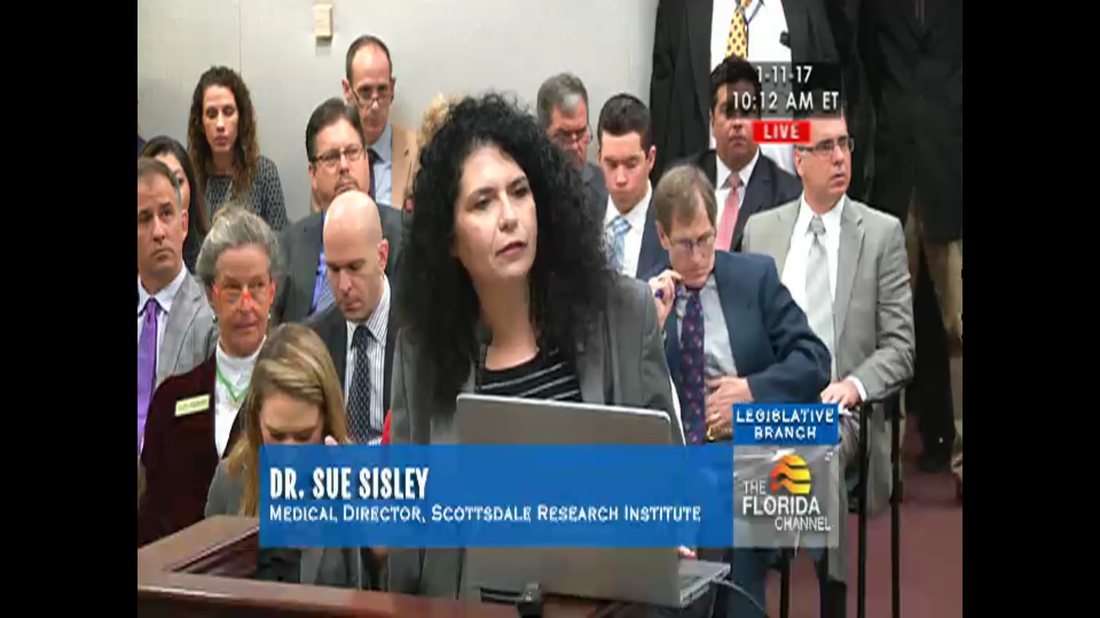

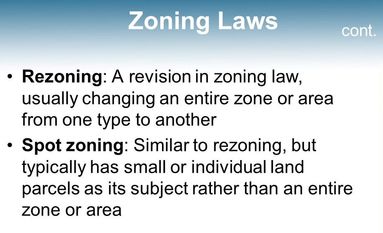
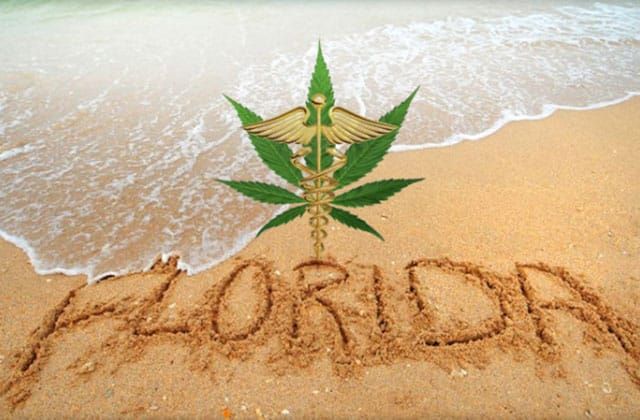
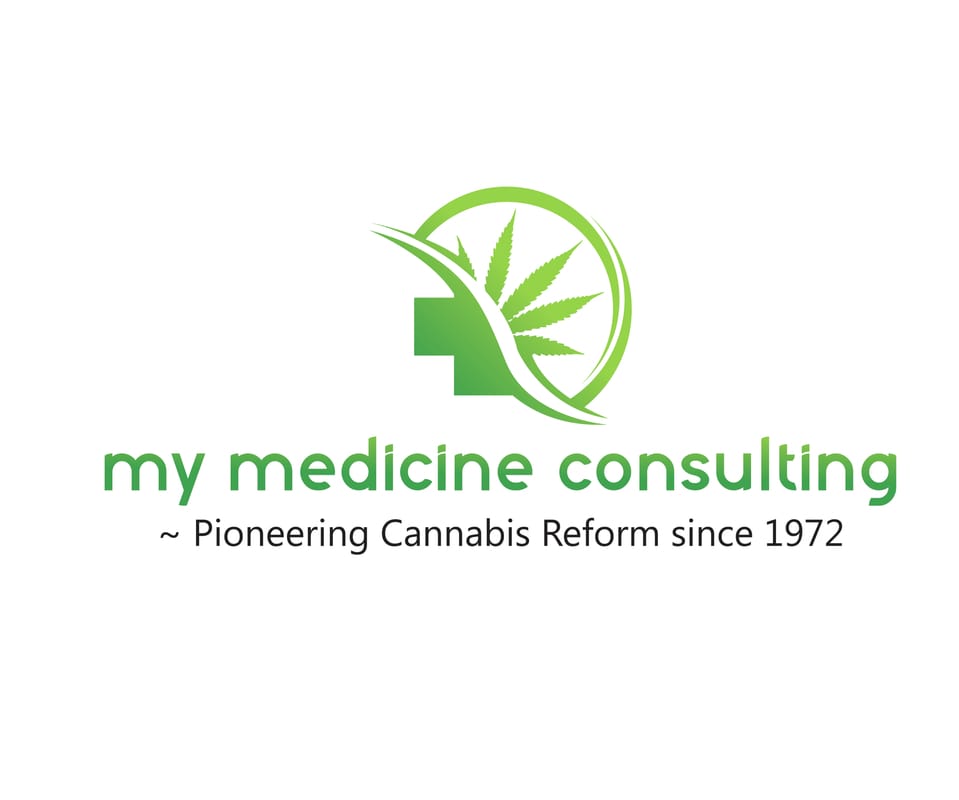

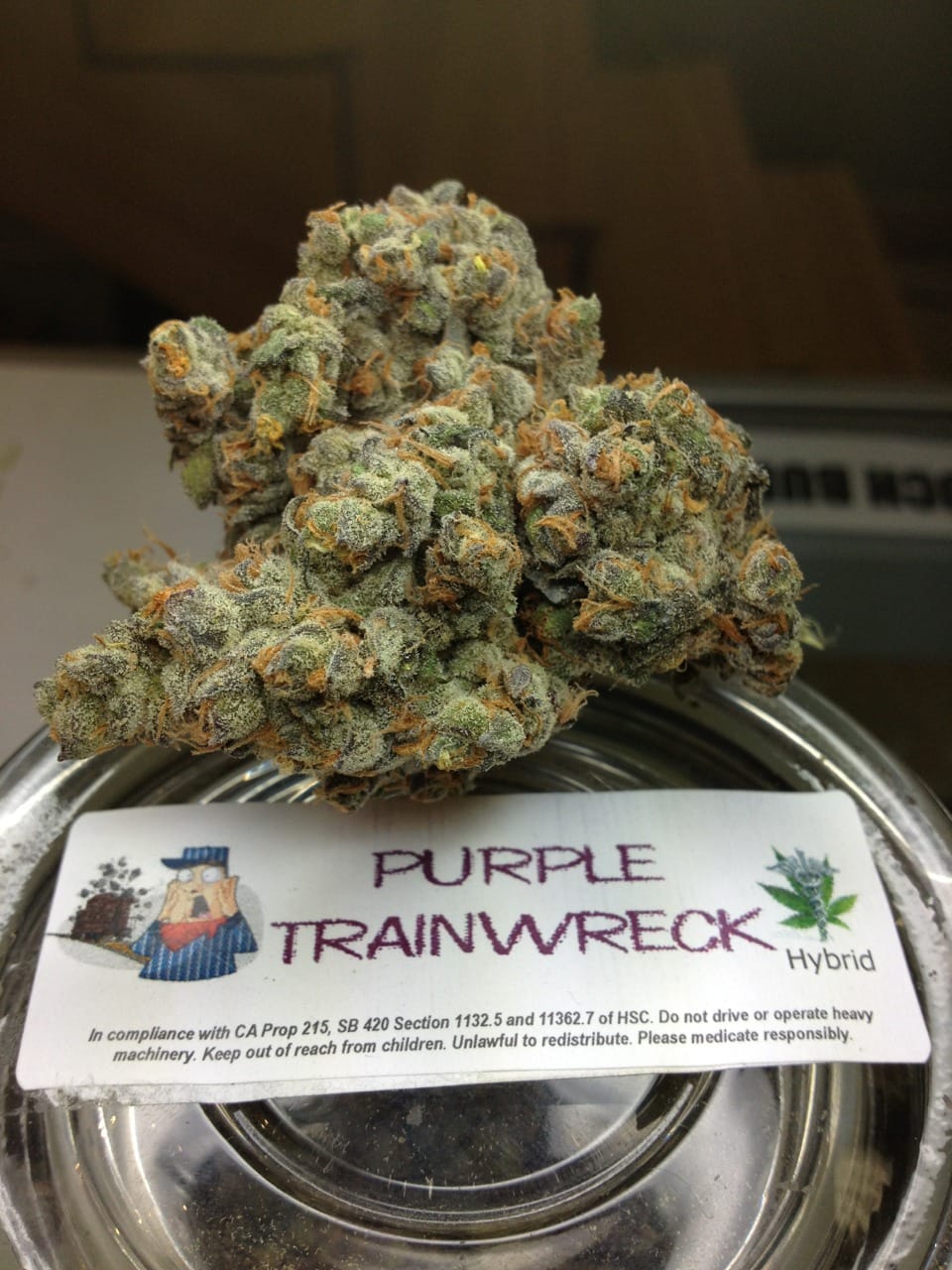



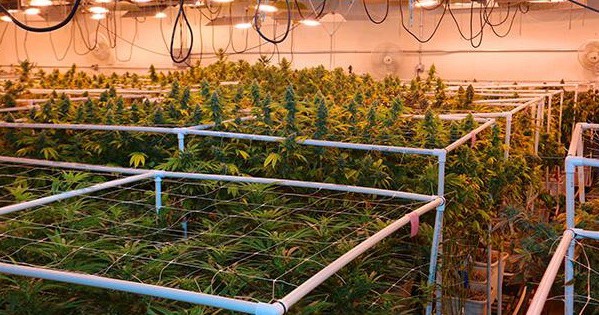
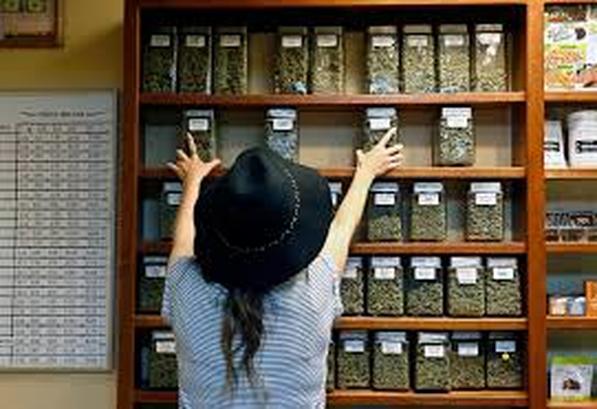
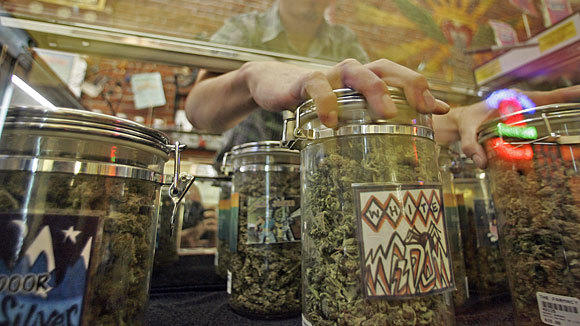
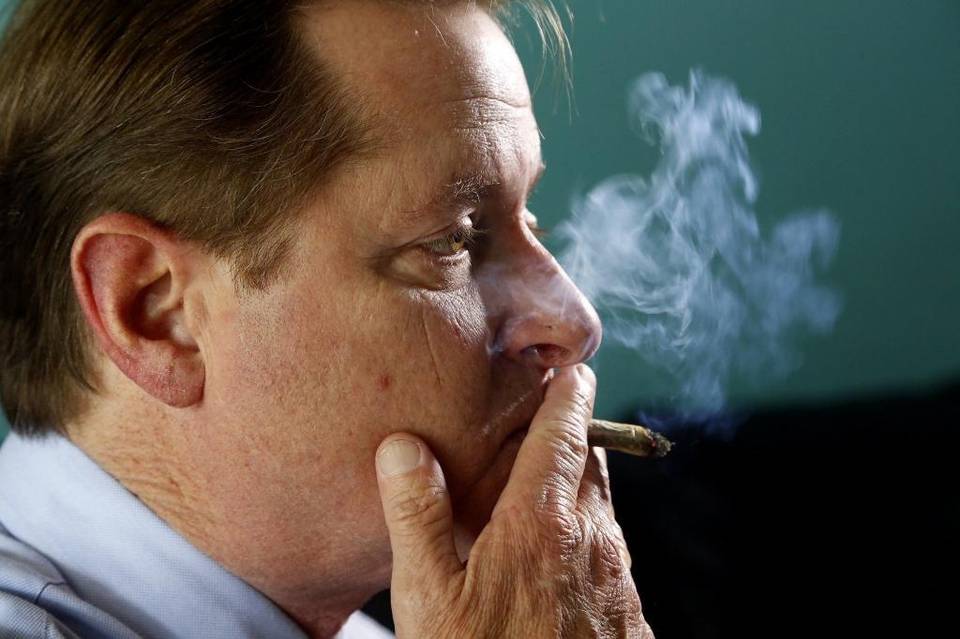
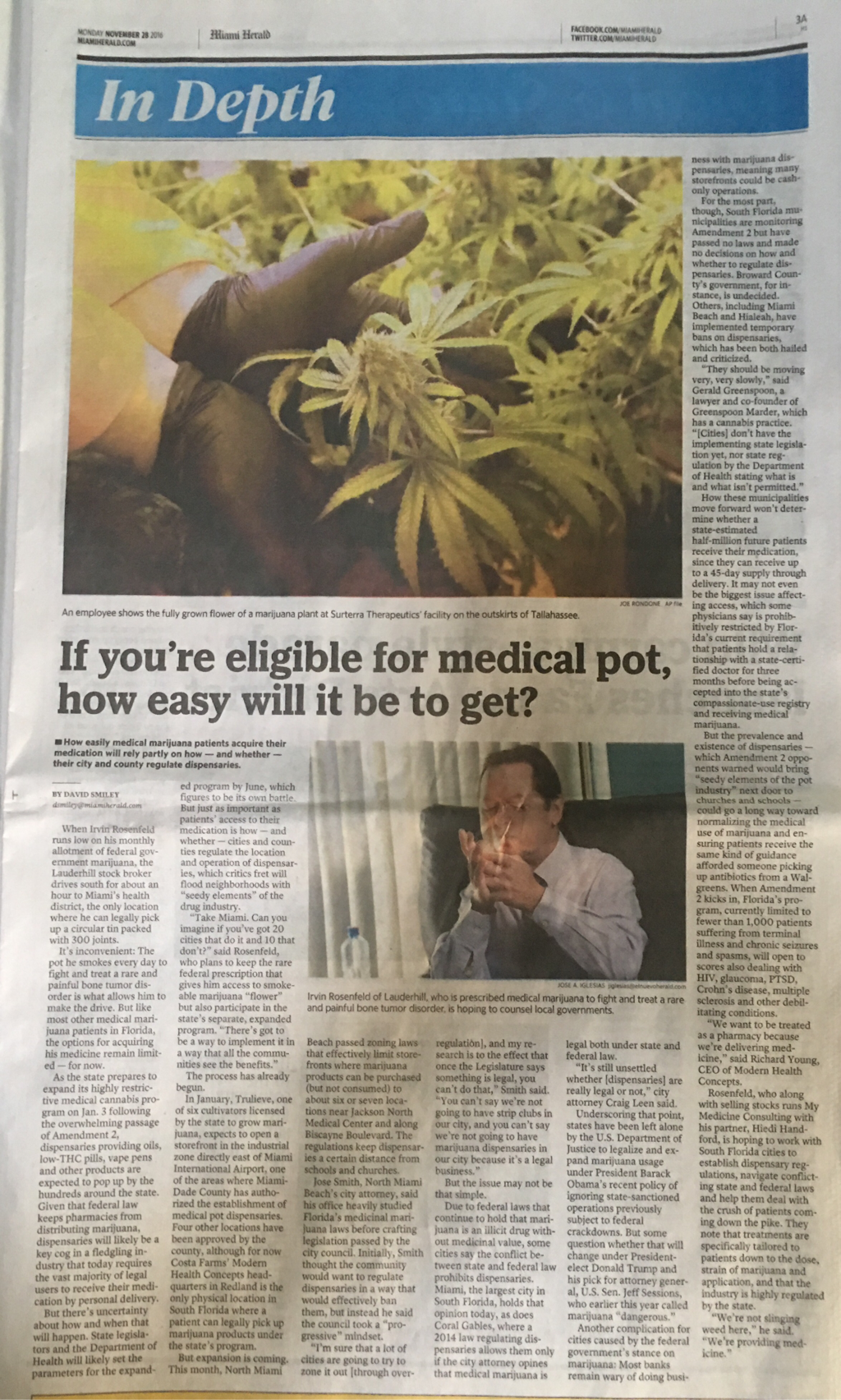
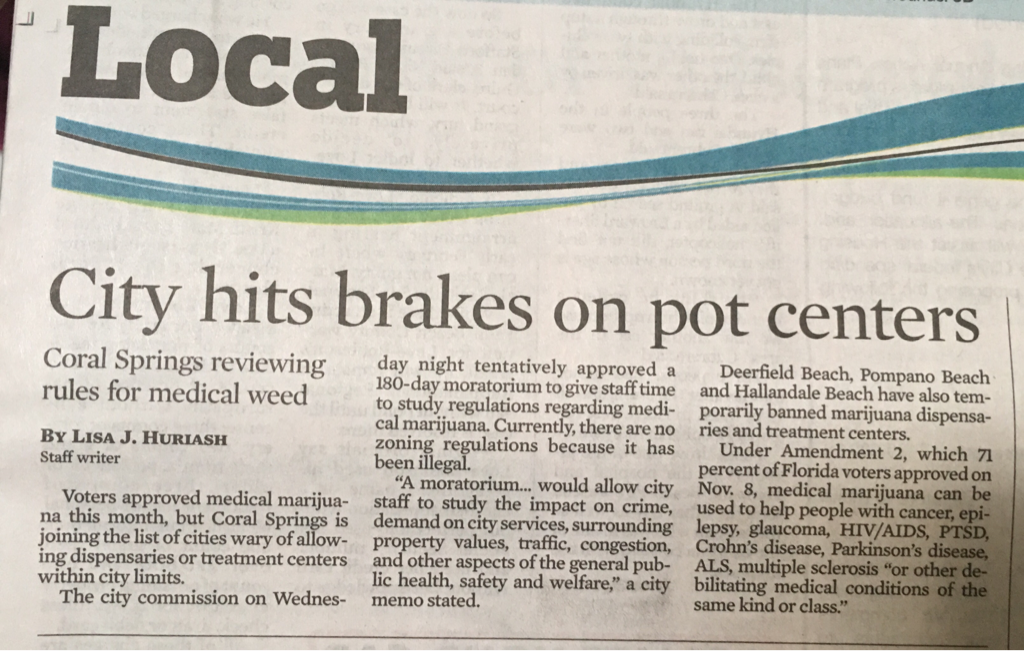
 RSS Feed
RSS Feed



